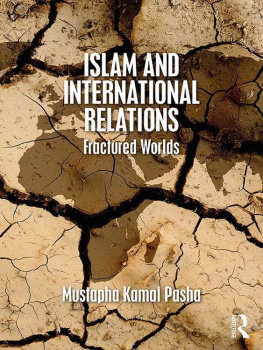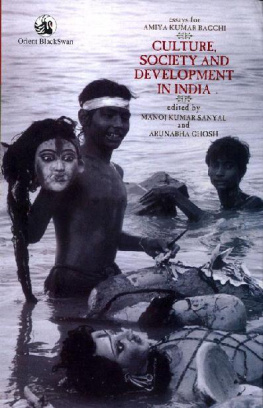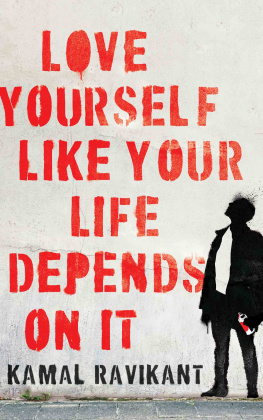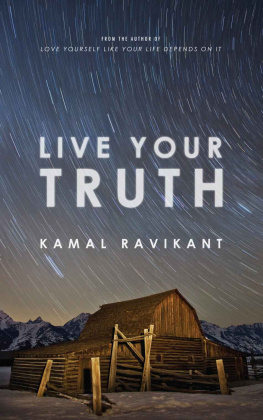Kamal Kumar Mahawar - The Ethical Doctor
Here you can read online Kamal Kumar Mahawar - The Ethical Doctor full text of the book (entire story) in english for free. Download pdf and epub, get meaning, cover and reviews about this ebook. year: 2016, publisher: HarperCollins Publishers India, genre: Romance novel. Description of the work, (preface) as well as reviews are available. Best literature library LitArk.com created for fans of good reading and offers a wide selection of genres:
Romance novel
Science fiction
Adventure
Detective
Science
History
Home and family
Prose
Art
Politics
Computer
Non-fiction
Religion
Business
Children
Humor
Choose a favorite category and find really read worthwhile books. Enjoy immersion in the world of imagination, feel the emotions of the characters or learn something new for yourself, make an fascinating discovery.

- Book:The Ethical Doctor
- Author:
- Publisher:HarperCollins Publishers India
- Genre:
- Year:2016
- Rating:4 / 5
- Favourites:Add to favourites
- Your mark:
- 80
- 1
- 2
- 3
- 4
- 5
The Ethical Doctor: summary, description and annotation
We offer to read an annotation, description, summary or preface (depends on what the author of the book "The Ethical Doctor" wrote himself). If you haven't found the necessary information about the book — write in the comments, we will try to find it.
The Ethical Doctor — read online for free the complete book (whole text) full work
Below is the text of the book, divided by pages. System saving the place of the last page read, allows you to conveniently read the book "The Ethical Doctor" online for free, without having to search again every time where you left off. Put a bookmark, and you can go to the page where you finished reading at any time.
Font size:
Interval:
Bookmark:
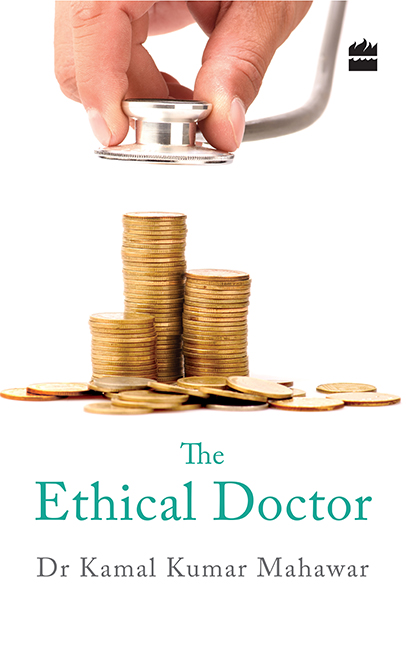
The Ethical
Doctor
DR KAMAL KUMAR MAHAWAR

HarperCollins Publishers India
To
My Parents, who sowed the seed
and
My Wife, who is still paying the price
The only thing necessary for the triumph of evil is for good men to do nothing.
Edmund Burke
CONTENTS
T here are a lot of shortcomings in this world and as an ordinary human being, with only a tiny bit of insight, I am acutely (and painfully) aware of my own. This book does not claim that I am righteous or that the rest of the world is immoral. This book is also not about pointing fingers at any individual or group. In fact, I wholeheartedly believe individuals are rarely wrong; systems often are. I am also old enough, sadly, to know that we are all dealt different cards and we are all trying to make a decent game out of it. We live and work in a society, imbibing its rules and following them. Sometimes, we collectively outgrow a rule that served us perfectly well for centuries. I can give several examples of practices that were the norm for centuries but when we look back today, they seem so obviously wrong. Yet, at the time, these must have been a way of living for people in that era. This book, I would like to think, is a part of the same human journey where we intermittently pause and take stock of the situation and discuss ways to make things better.
Declining values and corrupt practices are eating the heart of Indian society and its institutions. Doctors subscribe to the same value systems. Though this book concentrates on doctors and the delivery of health care in India, there are other functionaries in societypoliticians, civil servants, lawyers, businessmen, teachers, and citizens at largewho need to similarly evaluate themselves. Society can only move forward collectively, and so it must be our shared responsibility to engage in such introspection. Not for a moment would I accept that doctors are less ethical or honest than the rest of the populace; nor are they lacking any more in compassion, kindness or any of the other defining human attributes. However, the reality of life is such that over a period of time, each individual is drawn towards the population mean when it comes to values and character.
Sooner or later, somebody is going to point out that I dont myself live and work in India anymore. What right do I then have to talk about India and Indians? Am I not somebody who has run away from this system when I should have tried to stay back and work to improve it? Having obtained free medical education in India, what have I given back to Indian society? I cannot refute any of these allegations, nor do I want to. All I can and will say is that this book is not about me, or what I have contributed to India or the UKthe two countries that have given me all I have in life. That is a very personal matter for me and should be allowed to stay as such.
T here must be something about health care that sets it apart from other professions. Others in society do equally, if not more important, jobs; but it is the doctor whom human societies expect the most from and shower with huge respect in return. That is why a doctor falling short of expectations is always news. It is the doctor who has to take an oath on completion of his or her education to follow a code of conduct laid down centuries ago. Some say it is because we deal with human life. But is a lawyer defending somebody facing a death sentence not dealing with human life too? Is a civil servant deciding to give away land owned by poor people to corporates at throwaway prices not dealing with human life? Are teachers not dealing with human life or, for that matter, politicians? What is then so unique about doctors that even societies with remarkable tolerance for unethical and dishonest behaviour want them to act with more compassion and honesty?
The only conclusion I have reached is that it must have something to do with the direct physical pain and suffering that a disease brings. It is as if an illness is an act of god and doctors are the only humans who can help alleviate it. Historically, the air of mystery surrounding health and diseases may also have contributed to placing doctors on a pedestal.
It is my belief that just like a competent law and order machinery is essential for our national well-being, effective health care is essential for our personal and social well-being. Without the former, human societies tend to degenerate into chaos; without the latter, your entire personal life and of those connected to you could be put at risk. Just like a law-abiding state gives you confidence in your dealings within that society, a competent and ethical health care system gives you the confidence to plan your family life.
Patients demand cure and relief. In return, doctors want to earn a respectable livelihood. Patients also expect some compassion and kindness because times of illness are particularly vulnerable times for them. In return, they will give you more respect than other professionals receive. The deal is simple. What then goes wrong with our health care system that this simple deal cannot be delivered? Dysfunctional governance, lack of proper regulations, ineffective planning, self-serving attitudes and, sometimes, overt greedare some of the many reasons why the health care infrastructure has become infested with a number of unethical practices. As often happens, one mistake snowballs into another and rather than trying to examine the deeper issues and resolve them, every person connected to medicine has invented his or her own unique Indian solutionthe quintessential jugaad.
The purpose of this book is to look at these unethical practices that have spread their tentacles deep into the medical profession. Everyone, especially doctors, hates these practices. If there is anybody out there who thinks that doctors indulge in them out of choice, they are terribly and absolutely mistaken. The vast majority of doctors in India want to work ethically and earn an honest livelihood. They want society to recognize their talent, decades of hard work, devotion and sacrifice, and compensate them adequately for it. They want to be provided with the infrastructure for cutting-edge medicine and make a real difference to patients. If a large number of Indian doctors are failing to reach these standards, they cannot alone be at fault. Society and the many institutions in it will need to reflect on it too. That is exactly what this book attempts to do: introspect on behalf of us all.
Rapidly falling moral and ethical standards and the lack of a smoothly functioning system have become hallmarks of many aspects of our lives. How many of us can truly look in the mirror and say that we have been honest and upright all our lives? That we have never taken or given a bribe, that we have been ethical at all times and paid every single paisa of tax.
Individuals are governed by the culture of the herd they live in. If you dont follow the rules, you are not in the herd, for the only way to belong is to become like the rest. The closest example of this would be Indian tourists in London. The same people who dont think twice before spitting on the road and throwing litter all around in their own country transform dramatically as soon as they land in London or any other Western city. They know that in this new herd a different set of rules apply. The same principle applies to the medical fraternity in India. Certain norms have found such strong acceptance within the profession that professional bodies and associations are powerless against them and any new entrant must blindly follow them. The same doctors, when they migrate to other countries, behave differently. I know of many Indian doctors settled in the UK and other countries, who take a moral high ground for being upright. But the credit is not theirs for the taking. The credit goes, instead, to the well-grounded systems in place in those societies and their conducive environment. Having said that, every country has its own battles to fight and I dont for a moment believe any individual or group can really take a moral high ground here. Given similar circumstances, all human beings behave in the same way, that is, to first and foremost look after themselves and their own.
Font size:
Interval:
Bookmark:
Similar books «The Ethical Doctor»
Look at similar books to The Ethical Doctor. We have selected literature similar in name and meaning in the hope of providing readers with more options to find new, interesting, not yet read works.
Discussion, reviews of the book The Ethical Doctor and just readers' own opinions. Leave your comments, write what you think about the work, its meaning or the main characters. Specify what exactly you liked and what you didn't like, and why you think so.



